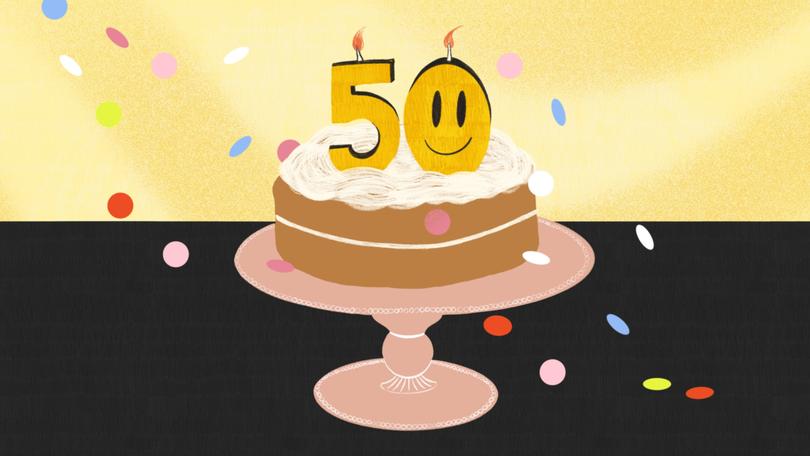CNBC: I was miserable in my 30s. Then I turned 50, and I’ve never been happier
I was miserable in my 30s. Then I turned 50, and I’ve never been happier. Here’s the No. 1 reason why.

What if the secret to being happier was purely just to get older?
It sounds absurd, but at 63 years old, I can say that the last few decades have been a tale of two midlives: one very dark from my 30s- to -40s, and one truly splendid ... starting when I hit 50.
The No. 1 reason? My emotional intelligence increased. And, as I discovered while writing my book, “Learning to Love Midlife: 12 Reasons Why Life Gets Better with Age,” high emotional intelligence is a crucial ingredient for boosting happiness and resilience.
Sign up to The Nightly's newsletters.
Get the first look at the digital newspaper, curated daily stories and breaking headlines delivered to your inbox.
By continuing you agree to our Terms and Privacy Policy.Why higher emotional intelligence boosts happiness
Emotional intelligence, which is the capacity to understand and control our emotions, as well as being sensitive to others’ feelings, nurtures our relationships and boosts our empathy.
This can lead to stronger social connections. And as we age, our social bonds become even more vital to our well-being. With higher emotional intelligence, you’re also better equipped to grasp and empathize with the emotions of others, fostering deeper, more fulfilling relationships.
Here’s how my emotional intelligence has grown since I’ve gotten older:
1. I feel more compassion for others
As I age, I’ve softened ... and not just around my belly. I experience less ego and more soul. I feel more deeply for others’ life circumstances.
Fortunately, I am able to direct some of that increased compassion toward myself as well.
2. I am less emotionally reactive and more emotionally fluent
When I was younger, I had a kind of emotional vertigo; my emotions constantly made me feel imbalanced and uneasy. I didn’t know how to dance with them. In fact, I often tried to outrun my emotions.
Today, I don’t sweat the small stuff. I’m able to positively reappraise negative experiences, like getting stuck in traffic in an Uber (interpretation: great chance to meditate).
Simultaneously, my enhanced ability to recognize my patterns, habits, and tendencies allows me to observe myself more effectively.
3. I don’t take things so personally
Don Miguel Ruiz, the author of “The Four Agreements,” says: “There is a huge amount of freedom that comes to you when you take nothing personally.”
This skill is particularly valuable in our polarized, “cancel culture” era.
4. I have a better understanding of how to create my ideal habitats
Social scientists call this “environmental mastery,” or the ability to determine which environments one will flourish in — and the capacity to adjust and adapt to changes in those habitats.
This also speaks to why, in the workplace, older people on a team have been found to create more “psychological safety” on teams: because their environmental mastery, combined with their compassion, helps them create the proper conditions for team flourishing.
5. I value relationships more
It’s been said that the two questions people ask on their deathbed are “Did I love well, and was I well‐loved?”
The longitudinal Harvard Study on Adult Development and the Blue Zones research conclusively show that the relationships we cultivate in our lives can actually increase our lifespan.
Of course, there are always outliers — Exhibit A: your perennially grumpy 75‐year‐old uncle. But he’s an exception, not the rule.
